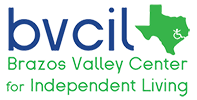February is Low Vision Awareness Month!
Come join Insightful Connections, the organization of Texas A&M students who are blind or visually impaired, to learn more about the challenges and triumphs of those who have low or no vision. Topics will be Braille, independent travel, assistive technology, and life experiences, followed by a question-and-answer session.
Logistical details are:
When: Tuesday, February 4th
Location: Koldus 111
Time: 5:30pm – 6:30pm




